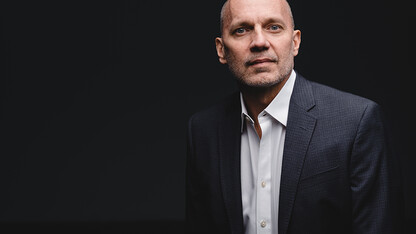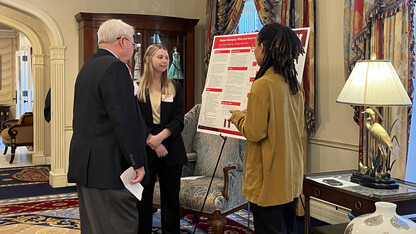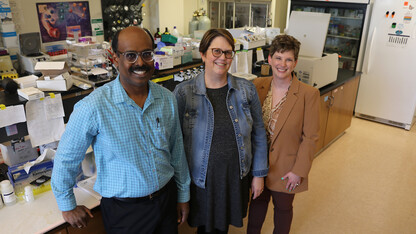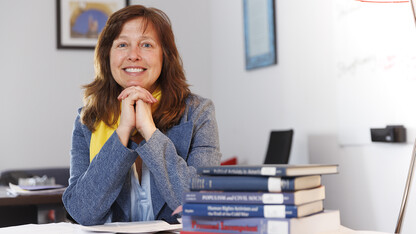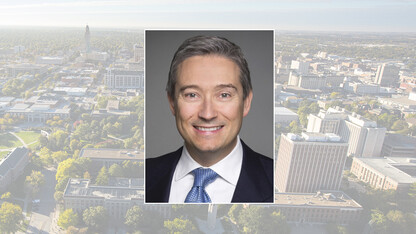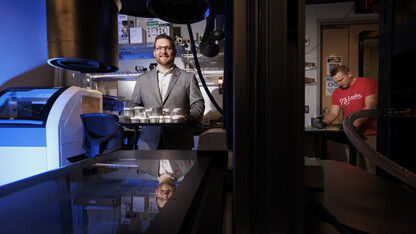· 6 min read
Garcia aims to increase equity on campus
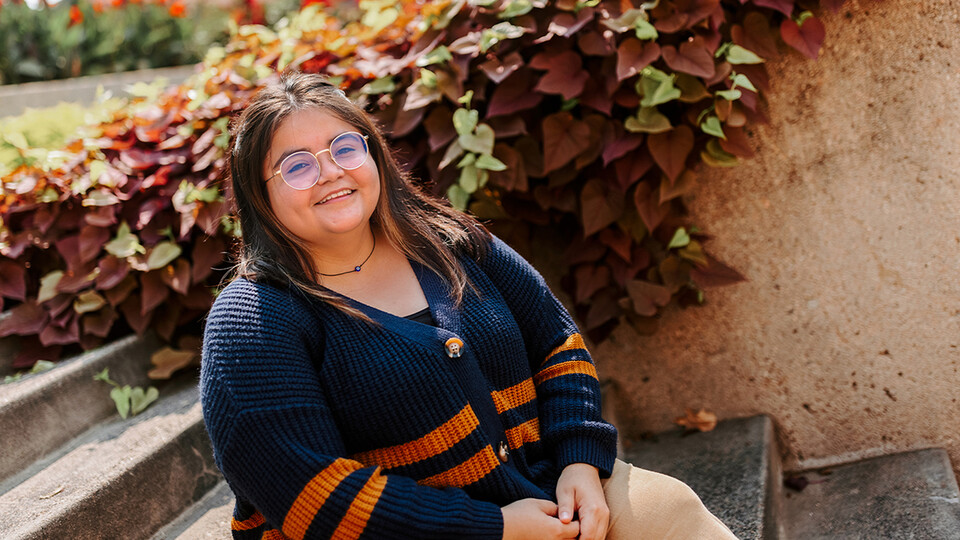
Editor's Note — This is part of a weekly student conversation series highlighted as part of Hispanic Heritage Month on the University of Nebraska–Lincoln's Medium page. The series will feature students who are making impacts on campus and beyond. This week, we're talking with Dulce Isabel Garcia, an advertising and public relations and journalism double major from Wood River, Nebraska. On campus, she strives to create safer, more equitable spaces for marginalized communities.
Talk about helping create the Combs Honors Scholars.
In complete honesty, in my first year in Honors, I didn’t think I belonged in the program. I very much had a sense of imposter syndrome. I looked around, and I didn’t see a lot of myself in my peers. I was a Hispanic immigrant, first-gen, low-income, undeclared major. I wanted to quit the program, but then I realized quitting wouldn’t do anything to help future students of color who felt the same way I did. The Honors Program offers so many incredible opportunities, and I hated the thought of myself and others missing those opportunities simply because we don’t think we belong or are good enough for them. I set on a mission to make Honors more inclusive and equitable.
Dr. Patrice McMahon, director of the Honors Program, sat with me, and I told her my vision for a group that could both provide community and support for students but also help foster systematic changes in the program. She gave nothing but support, and I started to work with then Honors Coordinator Shannon Mangram on goals and a constitution. This ultimately led to the Dr. Michael W. Combs Honors Scholars. We’re in our second year now, and it feels incredible. My hope is to create and offer a more safe, inclusive, and equitable space for traditionally underrepresented students. The Honors Program should be a place where everyone feels they belong because they do.
What role has mentorship played in your life?
Most of my accomplishments and success both at UNL and in general, my life, have been because of strong women guiding and mentoring me. Dr. Patrice McMahon and Shannon Mangram from Honors, Katie Kodad from OASIS, Jessica Fargen Walsh from [Journalism and Mass Communications](https://journalism.unl.edu/), and Melissa Homestead from [Arts and Sciences](https://cas.unl.edu/) have all been influential just during my time here at UNL. I cannot express enough gratitude for all they have done for me.
The best thing about mentors is that they are able to see things for you that you can’t see for yourself, and they constantly challenge and help you evolve. They teach from what they know and the mistakes they’ve made. They have access and know of people and resources you can’t possibly know about just as a student. Their mentorship did help propel me toward being a mentor for Honors. I’ve lived so many experiences and gotten so much help from resources that I hope I can pass that knowledge onto others.
You’ve been really involved on campus, from ASUN to ACES to UNL Define American and more. What have you learned from being involved in a range of groups?
I’m constantly learning from my involvement. Every organization and committee I stand on individually teaches me about a range of issues too long to list. Yet, in general, the greatest lesson I have learned is that students can and are a driving force on this campus and in Lincoln. We have a voice, a powerful one. We as students are doing essential work making this university better than before. The impact we can make and are making cannot be overlooked or underestimated.
How do your involvements on campus help you make an impact or explore your passions?
My driving force in everything I do has always been to help create safer, more equitable spaces for BIPOC folks and other marginalized communities. If you look at all my involvements, everything leads back to that goal.
Define American is about helping and supporting the immigrant, undocumented and refugee communities. I wanted to create the Combs Honors Scholars to help a historically white space like Honors feel more welcoming for students of color. As an Honors Peer Mentor, I want to be a guide and role model for BIPOC students because representation is everything. In the OASIS Student Advisory Board, I want to help create exciting events and help foster community for everyone at the Gaughan. I also want to help give back to the program because it’s done so much for me and others. As for my involvement in the ASUN Committee for Campus Life and Safety, my personal project is trying to add all the ADA doors, lactation stations, and gender-neutral bathrooms in every building to the Nebraska App.
While it might seem hard to see the connection between my involvement in ACES and helping students of color, there are a low number of students of color in the journalism school, and it’s the same for the industry. I joined ACES for both personal growth but to also be a voice and give input as a future journalist or editor of color in the field. I think all of these things lead back to the goal of wanting help.
Is there anything you hope to accomplish in your lifetime?
Grow a little taller. I’m joking. I want to be known as a good person who helped her communities for the better, and I want to make my loved ones proud.
What or who inspires/motivates you?
A lot. I owe everything to my mom. I’m a product of everything she is. My accomplishments are as much hers as they are mine. The same could be said for my brother. My friends are a constant source of support too. They push me to constantly be better and grow. I’m also inspired by other student activists on campus. I see the work they’re doing to make campus a better place, and it keeps me passionate about what I’m doing as well. The communities I belong to also inspire me. I see our struggles and our pain. I want to help make things better because we deserve better.
What is your advice to other Huskers looking to make an impact on campus or in their community?
If you see an issue or problem, and you have an idea on how to make things better, take your idea and go with it. Don’t wait for things to eventually happen. Change does not have to be huge. It can be small and subtle, and I promise someone will notice and be helped by it. It does not have to be organized. It does not have to be successful or go as planned. Someone always has to be the first. Hearing nos after a while feels better than what-ifs. Trying can be a form of activism itself.


